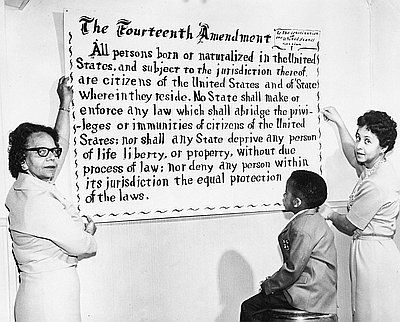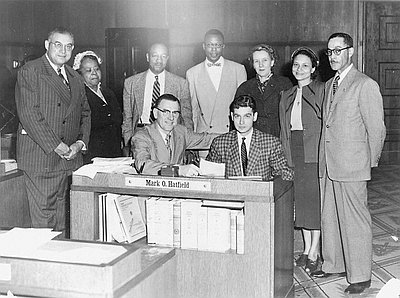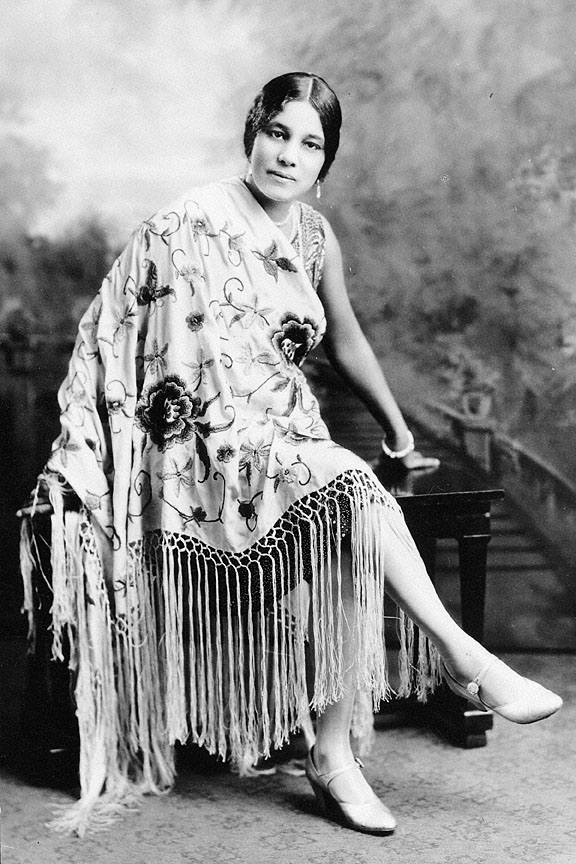- Catalog No. —
- CN 011493
- Date —
- November 1929
- Era —
- 1921-1949 (Great Depression and World War II)
- Themes —
- Black History, Government, Law, and Politics, Race, Ethnicity, and Nationality, Women
- Credits —
- Oregon Historical Society
- Regions —
- Portland Metropolitan
- Author —
- Oregon Journal Collection
Beatrice Morrow Cannady
Beatrice Morrow Cannady (1890-1974), shown here in a 1929 photograph, was one of Oregon’s pioneer African American civil rights advocates. Born in Litig, Texas, on January 9, 1890, she moved to Portland in 1910, where she met her first husband, Edward Daniel Cannady, a waiter at the Portland Hotel and the editor and co-founder of the Advocate, Portland’s only African American newspaper at the time.
Beatrice Cannady soon became an active member of the city’s small African American community. In 1914, she helped found the Portland chapter of the National Association for the Advancement of Colored People (NAACP) and quickly became one of the state’s most outspoken African American civil rights activists.
Cannady regularly challenged racial discrimination in public talks and in the pages of the Advocate. She became assistant editor of the paper in 1912, taking over as chief editor and owner in 1929. She wrote scathing editorials about the routine discrimination practiced in Portland and elsewhere in Oregon during the 1910s, 1920s, and 1930s, noting that “not even the pulpit has been as effective for the advancement of our Group, and for justice as the press.”
A graduate of the Northwestern School of Law, Cannady helped craft the state’s first civil rights legislation, which would have mandated full access to public accommodations without regard to race. Though this piece of legislation failed, in 1925 Cannady worked on the successful campaign to repeal Oregon’s notorious “black laws,” which prohibited African Americans from settling in Oregon and denied voting rights to people of color.
Cannady left Portland for Los Angeles in the 1930s, where she lived a quiet life until her death in 1974.
Written by Cain Allen, © Oregon Historical Society, 2002.
Related Historical Records
-
Portland Chapter NAACP 50th Anniversary
This 1964 photograph shows Sylvia N. Thompson (left) with her daughter Addie Jean Haynes and Addie's ten-year-old son Bryan Haynes (later Dr. Haynes, DDS) holding up a poster-sized copy of the …

-
Oregon's Civil Rights Bill, 1953
The proponents of Oregon’s Civil Rights Bill, also known as the Public Accommodations Bill, pose for posterity. Seated, from left: Philip S. Hitchcock and Mark O. Hatfield. Standing, …

